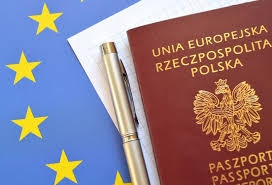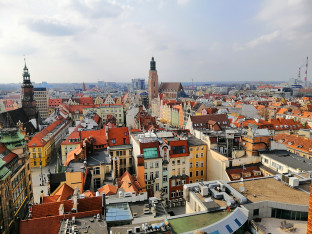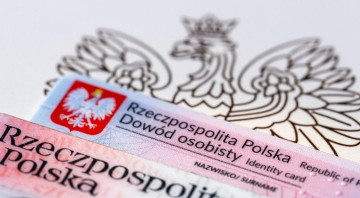Polish citizenship is the official legal status of a person, which gives him full rights and obligations established by Polish legislation. By obtaining Polish citizenship, a person receives all the rights granted to citizens of the European Union, including freedom of movement, residence and work in EU member states, the right to vote in elections in Poland, access to social services and medical care.
Question
How can you get Polish citizenship?
Respond
Polish citizenship can be obtained by birth - it is automatically granted if at least one of the parents is a Polish citizen. Naturalization is the process of acquiring citizenship through permanent residence in Poland for a certain period. Through marriage - a foreigner who is married to a citizen of Poland and lives in the country with a residence permit can apply for citizenship, through Polish origin - for persons with Polish roots, it is possible to obtain citizenship after the procedure of obtaining the Pole's Card or other confirmation. Due to the decision of the President of Poland, the president has the right to grant citizenship to a foreigner regardless of other criteria.
Obtaining Polish citizenship may require the collection of a significant number of documents, as well as knowledge of the Polish language and history.
Benefits of citizenship, departure for permanent residence in Poland:
EU rights: the opportunity to live and work freely in the EU.
Social guarantees: access to the Polish healthcare system, social benefits, education and pensions.
The opportunity to participate in the political life of Poland: to vote in elections and participate in the formation of the country's policy.
Obtaining Polish citizenship "by roots" means acquiring Polish citizenship on the basis of Polish descent, if your ancestors were citizens of Poland or of Polish descent. This process is known as obtaining a Polish card, which can later help to acquire citizenship.
The main steps for obtaining Polish citizenship by roots:
- Family tree research: collection of evidence of Polish origin, such as birth certificates, marriage records, other documents confirming the citizenship of ancestors who lived in Poland or had Polish citizenship before 1945. It is important to prove that one of the parents, grandparents or great-grandparents was a Polish citizen or of Polish origin.
- Obtaining a beaten card: the Polish card is a special document that confirms your Polish origin and gives you certain rights in Poland. To obtain it, you need to submit an application to the Polish consulate, prove your origin, demonstrate basic knowledge of Polish language, culture, history and confirm identification with Polish nationality.
- Application for citizenship after a Polish card: one year after obtaining a permanent residence permit based on a Polish card, you can apply for Polish citizenship. This process involves consideration of the application by the Polish authorities and usually requires permanent residence in Poland.
- Applying for citizenship without a Polish card: if there are confirmed documents that your ancestors were citizens of Poland, you can apply for citizenship through the citizenship confirmation procedure. This procedure is carried out directly in Poland or through the Polish consulate.
- Evidence of Polish citizenship of ancestors: a collection of documents confirming Polish citizenship of ancestors, for example, old passports, records of service in the Polish army or documents of residence.
Also, one of the options for legalization and moving to Poland is family reunification — this is a legal procedure by which citizens or residents of one country have the opportunity to bring their close relatives to live together permanently or temporarily. This right exists in most countries, including Poland, and is one of the ways foreigners can obtain a residence permit or even citizenship. In the context of moving to Poland, family reunification can include different categories of relatives who can apply for a residence permit. For this, it is necessary to fulfill certain conditions and submit relevant documents.
Who can be included in family reunification in Poland:
- Husband or wife: immediate family members can apply for a residence card (residence permit) on the basis of marriage with a Polish citizen or a foreigner who already has the right to reside in the country.
- Children: if one of the parents already lives in Poland legally, then children under the age of 18 or older, if they are minors and dependent on their father or mother, can be reunited.
- Parents: in certain cases, if a foreigner has the status of a permanent resident or Polish citizenship, he can apply for reunification with his parents, in particular, if they need guardianship or assistance.
- Other close relatives: in exceptional cases, other relatives may be reunited if this is supported by relevant documents (for example, through documentary evidence of an important need for assistance).
The procedure can be quite complex and requires attention to detail. This requires the collection of documents such as marriage certificates, birth certificates, financial stability documents, housing, etc. Legal assistance can facilitate the process, especially in terms of collecting and legalizing documents in Poland, as well as preparing the application and communicating with the Polish authorities.
Legal support of our "Consultant" service includes:
- Collection of documents: a lawyer will help to collect all the necessary documents correctly, check them for compliance with Polish requirements.
- Consultation with archives: a lawyer can help find archives, documents on the Polish citizenship of ancestors, birth certificates, marriages and other confirmations.
- Filing the application: a lawyer can take care of filing the application with the Polish consulate or other relevant authorities, helping you to fill out the correct forms and submit all the necessary documents.
- Representation at the Polish consulate or authorities: in some cases, it may be necessary to represent your interest at the consulates or other authorities dealing with citizenship issues.
- Decisions and appeals: If the application is rejected or there are problems with the confirmation of citizenship, the lawyer will help to appeal the decision or to find alternative solutions to the situation.
Advantages of legal support by the "Consultant" marketplace:
- Ensuring correctness of collection and submission of documents.
- Minimizing errors when filling out forms and documentation.
- Increasing the chances of success in the process of obtaining citizenship.
- Getting advice on the rights and obligations arising after obtaining citizenship.
Polish citizenship by roots (also known as citizenship by descent) can be obtained if you have Polish roots, meaning one or more of your ancestors were Polish citizens. The process of obtaining such citizenship can be complicated, so legal support can greatly facilitate this process. Since the process of obtaining Polish citizenship through roots can be long and demanding, legal assistance significantly increases the chances of a successful outcome, migration to Poland.
































